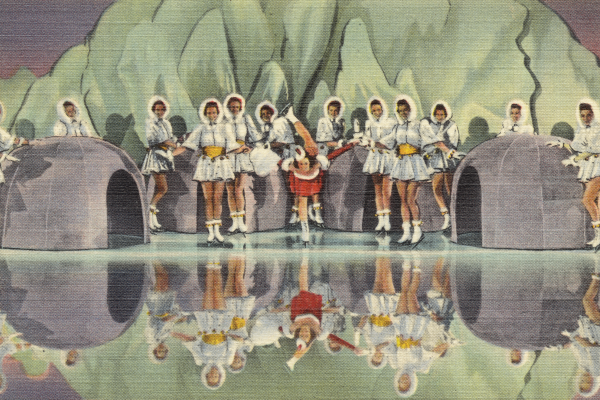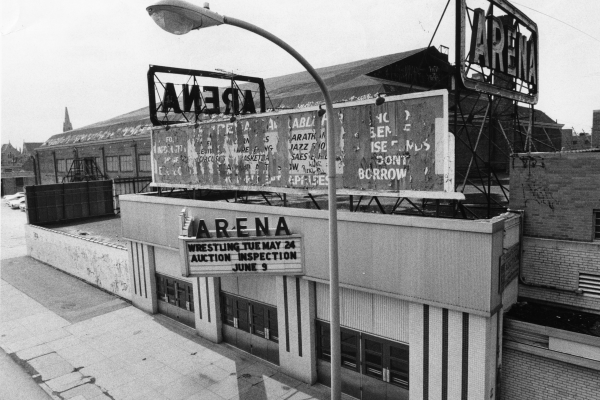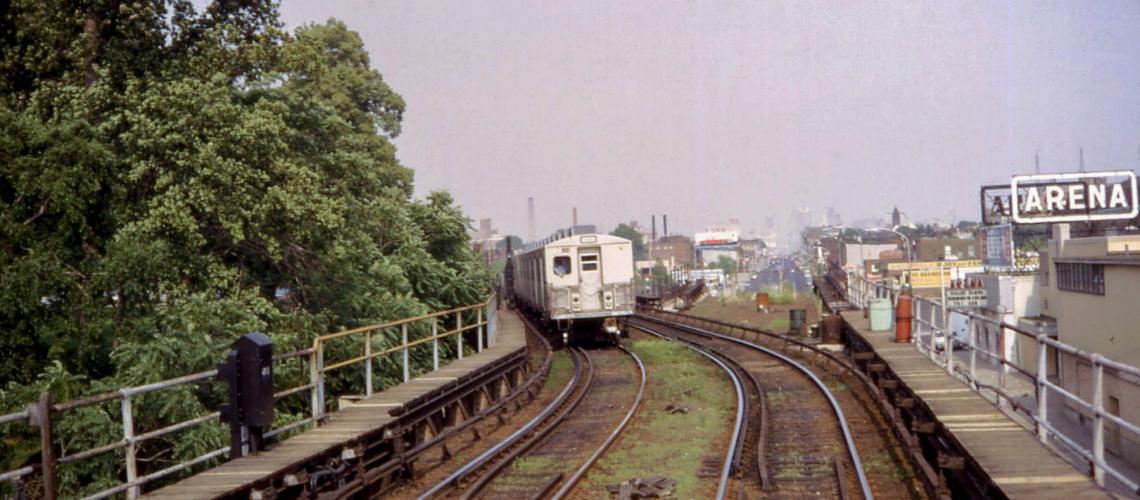The Arena's marquee was highly visible to Market Elevated passengers traveling to or from the city.
For over six decades the Arena marked the southeast corner of 45th and Market streets as a center for Philadelphia sports, entertainment, and civic events.
In its 60 years as a public venue, the Arena served Philadelphia as a multipurpose sports and entertainment center. During its heyday, its highlights rivaled those of Madison Square Garden. After the mid-1950s, the Arena steadily lost its relevance in a city that desperately needed to bolster its economic fortunes after losing much of its manufacturing base to the forces of industrialization—and its taxable wealth, as middle-class Whites stampeded from the city for the open spaces of the region’s suburbs. Construction of the capacious Spectrum in 1967 signaled the end of the Arena, though it would live on for a decade as a shadow of its former self.
Stories in this Collection
 1919–1944 The Arena originated in 1920 as “the Philadelphia Auditorium and Ice Palace” for ice hockey games and the occasional boxing match. In 1927, new ownership renamed the stadium “The Arena” to reflect the inclusion of non-ice sports. It also became a multi-purpose facility that hosted tennis matches, rodeos, and even political gatherings. |
1945–1965 The Arena’s attendance peaked after World War II thanks to Philadelphia’s increasing population and the introduction of professional basketball. In 1947, the Arena began hosting basketball games in addition to its standard fare of boxing, ice hockey, and ice shows. It served as the home court for the Philadelphia Warriors as well as the Philadelphia Ramblers and the Philadelphia Rockets—drawing crowds larger than its seating capacity. The Arena's owners upgraded the stadium with a fresh coat of paint and a new sign but added no additional seating to accommodate the large number of basketball fans. |
 1965–1983 The final years of the Arena were signaled by the departure of its regularly-hosted professional sports teams from Philadelphia. When the Arena’s long-time manager retired, he decided to sell the building at auction. A series of owners followed and the lack of stable leadership, partnered with decreased crowd attendance, made the Arena unprofitable. During its final 17 years of operation, the Arena experienced four different owners, a name change, increased violence, smaller crowds, and competition from the newly constructed, larger Spectrum stadium in South Philadelphia. The Arena finally closed for good in 1981 when it was allegedly set ablaze by one of its owners. |
